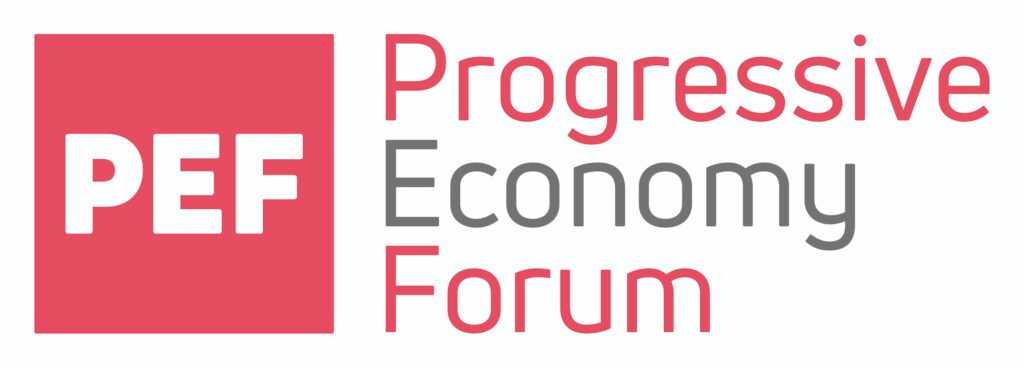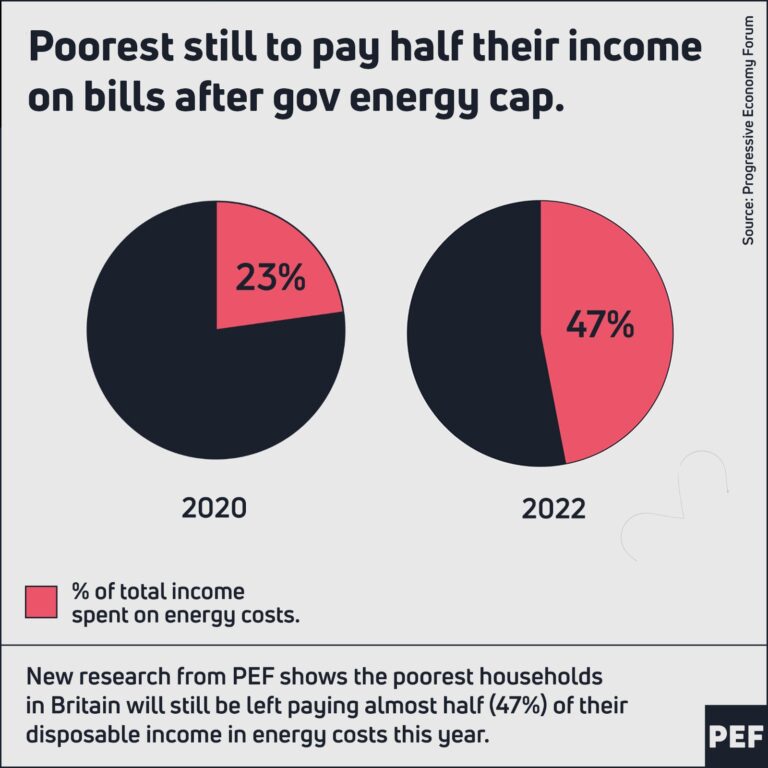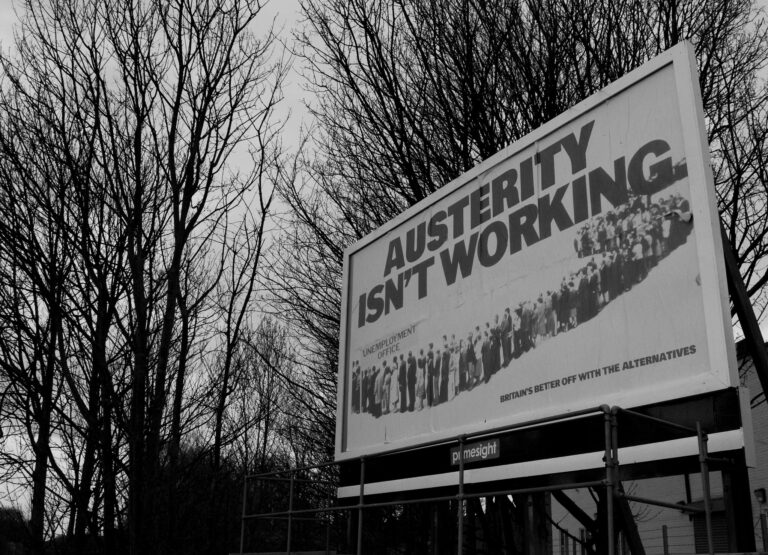
As we reach the year’s end, we wanted to look back on a dramatic year that has seen economic turmoil here and across the globe, and the dramatic return of inflation to levels unknown for decades.
Through it all, the Progressive Economy Forum has argued for evidence-based, progressive economic policy that can cut against the crumbling neoliberal and austerity consensus and make the case for a fairer, more sustainable economy. Below, we pick out some of the year’s highlights, including a major conference on progressive economics and a decisive pre-Autumn Statement intervention that helped shape the public narrative.
Progressive Economics 2022
Hosted with the University of Greenwich, PEF’s first Progressive Economics conference saw 500 attendees at a packed day at Greenwich’s historic main campus with debates and discussion on the cost of living crisis, the future of work, responding to the climate disaster and the political economy of Russia’s war, amongst others. With speakers including Michael Marmot, Caroline Lucas and Ed Miliband, the whole day is available as separate recordings from here. Nadia Whittome MP, who spoke on the caring economy panel, wrote an account of the day over here.
Progressive Economics 2023 has been provisionally booked for June 11, University of Greenwich.
Online discussions
Alongside our big in-person events, PEF has hosted regular webinars with expert speakers, this year including Jason Hickel and Ann Pettifor on degrowth, Robert Skidelsky and Guy Standing debating Basic Income versus a Job Guarantee, and Jill Rutter, Peter Holmes and Christopher Grey on the economic impact of Brexit, amongst others. Recordings are available on our YouTube channel.
Our blog has carried regular discussions and analysis throughout the year, from PEF Council members and beyond – you can read it here.
Brexit: Reviewing the Trade and Cooperation Agreement
Written by trade expert Peter Holmes of the Sussex Trade Policy Observatory, this timely publication argued that the existing Trade and Cooperation Agreement between the EU and the UK is not only flawed, but open to renegotiation in 2025, providing an ideal opportunity to correct some of the increasingly obvious problems with the current deal.
You can read Reviewing the TCA: how to salvage something from the wreckage of Brexit here.
The Case for a £15/hour Minimum Wage
With the cost of living crisis eating up wages and salaries, after a decade of flat or falling real wages for most, the need for a significant increase in pay has become clearer. This paper, written by James Meadway and Howard Reed, argues that the £15/hour minimum wage called for by trade unions is not only affordable, but a necessary compensation for real income losses since 2010. Forming PEF’s submission to the Low Pay Commission, it will be cited in this year’s LPC report.
The Case for a £15/hour Minimum Wage can be downloaded here.
The distributional impact of energy price rises
With domestic energy bills skyrocketing through the year, PEF’s work on the distributional impacts of domestic energy price increases, undertaken by Gissell Huaccha of Leeds University, was used as the basis for a Guardian report on the shocking impacts of energy price hikes on the poorest – even with government support, here. The original modelling results are here.
Funded by the Andrew Wainwright Reform Trust, a full report will be published in early 2023.
Killing the “fiscal black hole”
After September’s disastrous “mini-Budget”, which saw a sudden spike in government borrowing costs and a falling value of the pound, a new Prime Minister and Chancellor started insisting that a “fiscal hole” in the government finances now had to be filled by cutting spending.
Timely work by Rob Calvert Jump and Jo Michell exposed the “dangerous fiction” of the claims made by the government and others of a “fiscal black hole”, with the size of the supposed hole completely dependent on uncertain forecasts and the government’s own rules. You can read their report here.
PEF’s work attracted coverage on the BBC, including the Today programme; the Times, the Daily Mail, the Telegraph and across the broadcast and online media, helping set the domestic economic discussion in the run-up to a crucial Autumn Statement . Questions were put to Jeremy Hunt about the supposed “fiscal hole” and by the time of the Autumn Statement, the rhetoric was dropped entirely. Opposition to austerity is central to PEF’s aims and challenging the poor framing used to support arguments for it is crucial in improving the quality of public economic debate in Britain.
As our multiple economic crises worsen, the need for clear, evidence-based economic alternatives to the failed policies of austerity and neoliberalism is becoming more pressing. PEF will continue to publish and argue for an economics and economic policy that can support a fairer, more sustainable country and planet.







